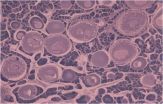New insight into links between obesity and activity in the brain
Study on effects of anti-obesity drug on the brain paves way for more effective treatments
2010-10-27
(Press-News.org) Scientists have revealed that an anti-obesity drug changes the way the brain responds to appetising, high-calorie foods in obese individuals. This insight may aid the development of new anti-obesity drugs which reduce the activity in the regions of the brain stimulated by the sight of tasty foods.
Researchers at the University of Cambridge discovered that the anti-obesity drug sibutramine reduced brain responses in two regions of the brain, the hypothalamus and the amygdala, both of which are known to be important in appetite control and eating behaviour. Their findings are reported today in The Journal of Neuroscience.
Professor Paul Fletcher, from the Department of Psychiatry and the Behavioural & Clinical Neuroscience Institute at the University of Cambridge and one of the paper's authors, said: "Currently, there are few drugs that effectively help patients to lose weight. Developing new pharmaceuticals is expensive and risky. However, our findings suggest that we may be able to use brain imaging and psychological tests to make better predictions of which drugs are likely to work."
Using functional magnetic resonance imaging (fMRI), the researchers measured brain activity while obese volunteers viewed pictures of appetising high-calorie foods – like chocolate cake – or pictures of low-calorie foods – like broccoli. The brain scanning was carried out both after two weeks of treatment with the anti-obesity drug, sibutramine, and two weeks of placebo treatment.
On placebo, it was shown that simply seeing pictures of appetising foods caused greater activation of many regions of the brain that are known to be important for reward processing. On sibutramine, however, they found that the anti-obesity drug reduced brain responses to the appetising foods in two regions of the volunteers' brain - the hypothalamus and the amygdala. These two regions are known to be important in appetite control and eating behaviour. Additionally, people who had the greatest reduction of brain activation following drug treatment tended to eat less and to lose more weight.
Professor Ed Bullmore, from the Department of Psychiatry at the University of Cambridge and director of the GlaxoSmithKline (GSK) Clinical Unit in Cambridge (CUC), said: "Our results help us to understand more precisely how anti-obesity drugs work in the brain to change eating behaviour and hence, ultimately, to assist people in losing weight.
"The most exciting aspect of these results is that they help us to see that brain and behaviour are fundamental to understanding and treating obesity. Simply because obesity involves major changes in body weight and body composition, it is easy to imagine that it is entirely 'a body problem'. These results remind us that the major cause of obesity in the West is over-eating, and this behaviour is regulated by reward and satiety processing circuits in the brain."
###
For additional information please contact:
Genevieve Maul, Office of Communications, University of Cambridge
Tel: direct, +44 (0) 1223 765542, +44 (0) 1223 332300
Mob: +44 (0) 7774 017464
Email: Genevieve.maul@admin.cam.ac.uk
Notes to editors:
1. The paper 'Distinct modulatory effects of satiety and sibutramine on brain responses to food images in humans: a double dissociation across hypothalamus, amygdala and ventral striatum' will be published on 26 October 2010 in The Journal of Neuroscience.
2. At the time the study was conducted, sibutramine was licensed for treatment of obesity. Its marketing license has since been withdrawn due to concerns about
END
ELSE PRESS RELEASES FROM THIS DATE:
2010-10-27
The food industry generates a lot of waste products, but one of these, eggshells, could help combat climate change, according to research published in the International Journal of Global Warming this month.
Basab Chaudhuri of the University of Calcutta and colleagues have demonstrated that the membrane that lines an eggshell can absorb almost seven times its own weight of the greenhouse gas carbon dioxide from the atmosphere. The carbon dioxide thus trapped could be stored in this form until energy-effective methods of using the gas could be found that would not compound ...
2010-10-27
Dr. Jack Musick, emeritus professor at the Virginia Institute of Marine Science, has overseen a global study suggesting that 33 percent of shark, skate, and ray species are threatened with extinction.
The work is part of a major new study of vertebrates by the International Union for Conservation of Nature (IUCN), the world's oldest and largest environmental network. The IUCN study shows that conservation actions have benefitted a few species of vertebrates around the world during the last few decades, but are too few and far between to slow an overall rapid increase ...
2010-10-27
Scientists have been working on organic solar cells for about a decade. Their manufacture is environmentally friendly and they can be applied to all kinds of materials, such as plastic film, for instance. The trouble is, they only yield a fifth of the electrical energy that silicon solar cells do, with most of the electrical current trickling away into the material instead.
Scientists at Helmholtz-Zentrum Berlin (HZB) have developed a method that uses the magnetic fingerprint of the charge-carrying particles to reveal exactly how electricity is being lost. They did so ...
2010-10-27
New research has provided the first evidence that 'gender bending' chemicals which find their way from human products into rivers and oceans can have a significant impact on the ability of fish to breed in UK Rivers.
The findings from the four year study, led by the universities of Exeter and Brunel, has important implications for understanding the impacts of these chemicals on ecosystem health and possibly on humans.
Endocrine disrupting chemicals (EDCs) disrupt the ways that hormones work in the bodies of vertebrates (animals with backbones), including humans.
They ...
2010-10-27
There are many good reasons to ensure sufficient exercise in everyday life. However, advising patients with increased blood pressure (hypertension) to exercise regularly is often regarded as a specific medical measure aiming to reduce the increased risk of late complications. But whether more exercise actually helps to avoid illnesses related to hypertension or at least delay their onset has been insufficiently investigated. In order to provide better advice to patients with hypertension, informative clinical studies are therefore needed. This is the result of a report ...
2010-10-27
Scientists at The University of Manchester have developed software for mobile phones that can track your facial features in real-time. Eventually it will be able to tell who the user is, where they are looking and even how they are feeling.
The method is believed to be unrivalled for speed and accuracy and could lead to facial recognition replacing passwords and PIN numbers to log into internet sites from a mobile phone.
"Existing mobile face trackers give only an approximate position and scale of the face," said Dr Phil Tresadern, lead researcher on the project. "Our ...
2010-10-27
Scientists have demonstrated for the first time that a certain class of RNA (known as long non-protein-coding RNA [lncRNA]) are involved in the host response to viral infection. These findings, published today in the online journal mBio®, could greatly change the way scientists look at the body's response to viral infection.
"To our knowledge, our study is the first to use comprehensive deep-sequencing technology to clearly demonstrate that lncRNAs are involved in the host response to viral infection and innate immunity," says Michael Katze of the University of Washington, ...
2010-10-27
WASHINGTON, Oct. 26, 2010 — Just five minutes of outdoor activity — such as exercising in a park, working in a backyard garden or walking on a nature trail — is good for the brain, with tangible benefits for mental health, according to the latest episode in the American Chemical Society's (ACS) award-winning podcast series, "Global Challenges/Chemistry Solutions."
The new Global Challenges podcast and website describe scientific research indicating that physical activity in natural areas, known as 'green' exercise, can lead to improvements in mental health. The research ...
2010-10-27
AMES, Iowa – The quantity and quality of data coming back from NASA's Kepler Mission is changing how astronomers study stars, said Iowa State University's Steve Kawaler.
"It's really amazing," said Kawaler, an Iowa State professor of physics and astronomy. "It's as amazing as I feared. I didn't appreciate how hard it is to digest all the information efficiently."
The Kepler spacecraft, he said, "is a discovery machine."
Kepler launched March 6, 2009, from Florida's Cape Canaveral Air Force Station. The spacecraft is orbiting the sun carrying a photometer, or light ...
2010-10-27
The question of why women are so underrepresented in math-intensive fields is a controversial one. In 2005, Lawrence Summers, then president of Harvard University, set off a storm of controversy when he suggested it could be due partly to innate differences in ability; others have suggested discrimination or socialization is more to blame. Two psychological scientists have reviewed all of the evidence and concluded that the main factor is women's choices—both freely made, such as that they'd rather study biology than math, and constrained, such as the fact that the difficult ...
LAST 30 PRESS RELEASES:
[Press-News.org] New insight into links between obesity and activity in the brain
Study on effects of anti-obesity drug on the brain paves way for more effective treatments

